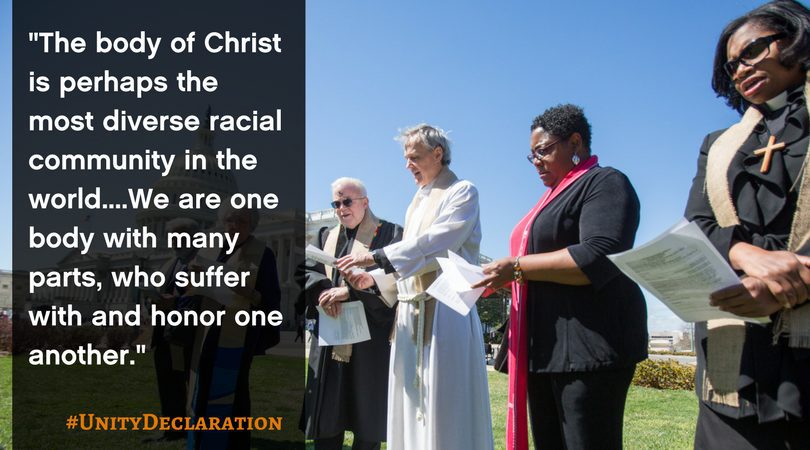Washington, D.C. – More than 80 diverse faith leaders today released a declaration calling on the churches and Congress to focus on the integral connection between racism and poverty.
The Unity Declaration on Racism and Poverty, which was sent to members of Congress before last night’s State of the Union address, appeals to all people, especially Christians, to actively work against racism and poverty. It notes that the “body of Christ is perhaps the most diverse racial community in the world.”
The leaders call on political leaders from both parties to develop legislative agendas that will reduce racism and poverty. They assert that “[r]acism is systematic and structural in America and harms people of color in very specific, measurable, and tangible ways.”
The leaders are “deeply troubled” by budget and other proposals coming from Congress and the administration that would hurt struggling people of all races in both the United States and around the world. These threats to anti-poverty programs have unified them into “a more vigorous, multiracial Christian movement to maintain a circle of protection around all people in poverty and God’s children of color in particular, who are disproportionally impacted.”
A letter to Congress introducing the Declaration reads in part:
“As Christians, we are grounded in God’s love for all people, and we feel called to ask our churches and political leaders of both parties to work together to overcome racism and poverty which are theological, biblical, and gospel issues for us, not merely political or partisan ones…
“We are purposefully sending you this statement before you go to your respective retreats. In addition to reading this statement thoughtfully, we ask for the following three things: first, we ask you to discuss this statement and the issues central to it—racism and poverty— at your retreats; second, we ask you to incorporate these concerns into your policy decisions and legislation in 2018 and beyond; third, we ask you to convene meetings with faith leaders in your communities to plan follow-up action on these issues in your states and districts…
“Racism and poverty are systemic issues that are central to the Bible and the teachings of Jesus. Therefore, they are critical to policy choices made by political leaders of faith and conscience.”



